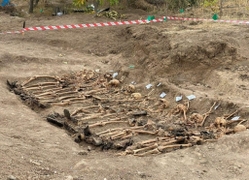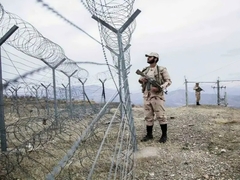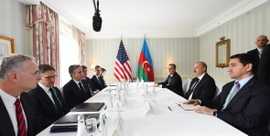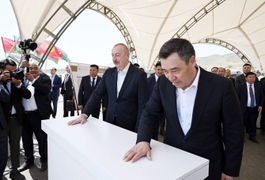North Korean leader Kim Jong Un departed from Russia on his armored train, wrapping up a six-day trip that focused largely on military issues.
A departure ceremony was held at the Artyom-Primorsky-1 station, where Russian high-ranking officials, including Russian Natural Resources Minister Alexander Kozlov, Moscow's ambassador to North Korea Alexander Matsegora, and Governor of the Primorye region, were present to see off the North Korean leader.
The distance from Artyom to the Khasan railroad station on the border with North Korea exceeds 200 kilometres (124 miles), with travel time taking several hours.
Kim Jong Un arrived in Russia on September 12, after a gap of four years.
The following day, he joined Russian President Vladimir Putin on a visit to the Vostochny Cosmodrome, where they were briefed on the assembly of the launch vehicle within the Angara space rocket complex.
The two leaders examined the construction progress of the Angara launch complex and the Soyuz-2 launch facility.
Later, President Putin discussed military matters, the war in Ukraine and deepening cooperation, initially in an expanded format and followed by a one-on-one meeting.
On September 15, Kim Jong Un visited an aircraft plant in Komsomolsk-on-Amur that produces Russia’s most powerful fighter jets. He conducted an extensive evaluation of the demonstration flight of the Russian Su-35 fighter jet.
On September 16, the North Korean leader travelled to an airport near Vladivostok where Russian Defense Minister Sergei Shoigu and other senior military officials accompanied him in an inspection of Russia’s strategic bombers and other warplanes.
Shoigu also showed him another of Russia’s latest missiles, the hypersonic Kinzhal, carried by the MiG-31 fighter jet, that took part in its first combat role in Ukraine.
Some analysts speculate that Kim Jong Un’s recent tours of military and technology sites may offer a glimpse into his strategic objectives in Russia. Some suggest that these visits could be indicative of potential negotiations, possibly involving the supply of munitions to bolster Putin's dwindling reserves amid the drawn-out war in Ukraine.
Furthermore, there are discussions surrounding the possibility of military collaboration between the two nations, with a focus on modernizing North Korea's aging air force, which still relies on Soviet-era warplanes dating back to the 1980s.


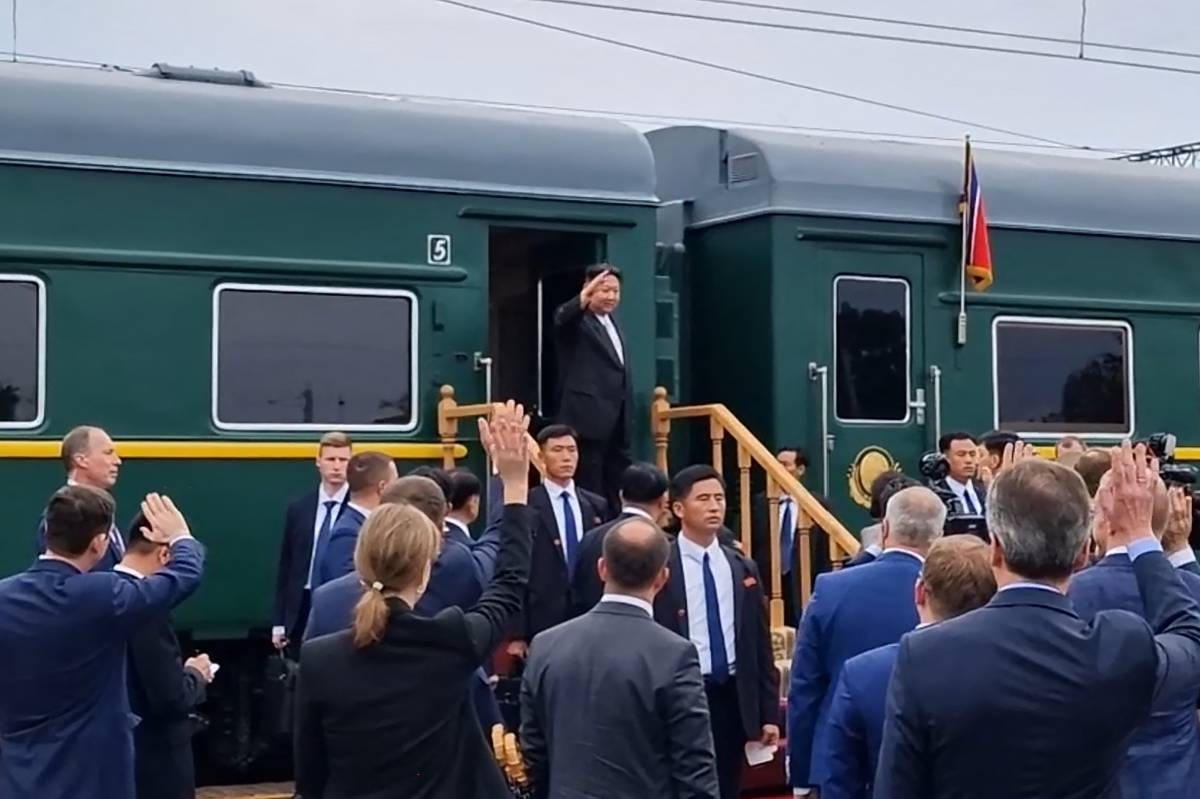




 As of April 27, additional 48 bodies were unearthed in the liberated lands of Azerbaijan, bringing the total count of discovered remains to over 600.
As of April 27, additional 48 bodies were unearthed in the liberated lands of Azerbaijan, bringing the total count of discovered remains to over 600.
 U.S. Secretary of State Antony Blinken reiterated Washington’s unwavering support for the ongoing peace process between Azerbaijan and Armenia in a...
U.S. Secretary of State Antony Blinken reiterated Washington’s unwavering support for the ongoing peace process between Azerbaijan and Armenia in a...
 Kyrgyzstan has joined the extensive reconstruction efforts in the Karabakh region of Azerbaijan, after a series of mega initiatives were launched b...
Kyrgyzstan has joined the extensive reconstruction efforts in the Karabakh region of Azerbaijan, after a series of mega initiatives were launched b...
